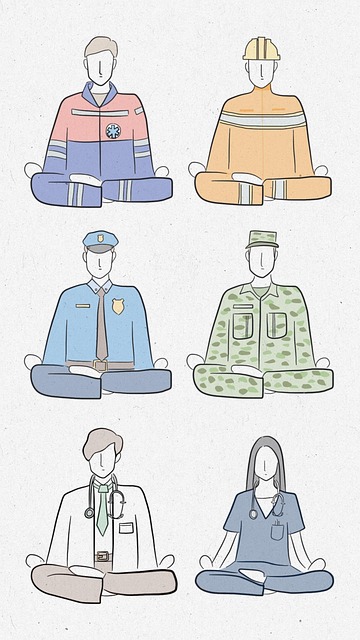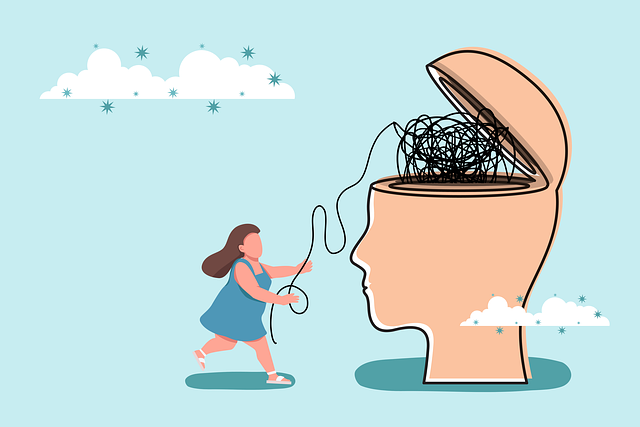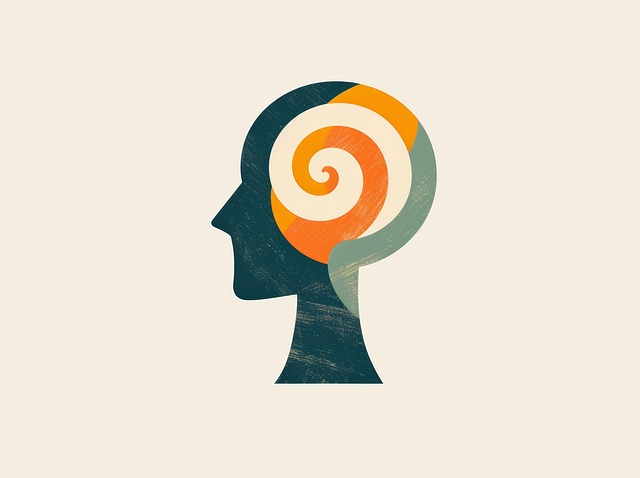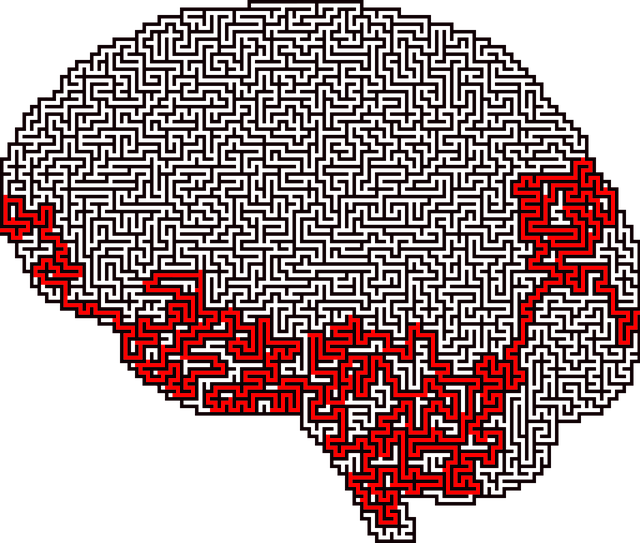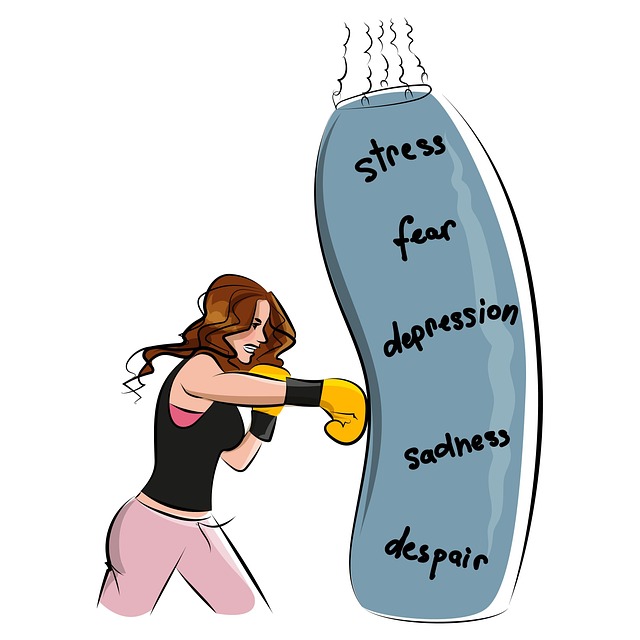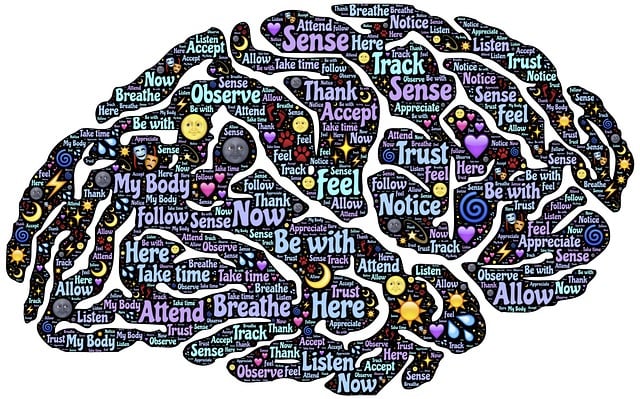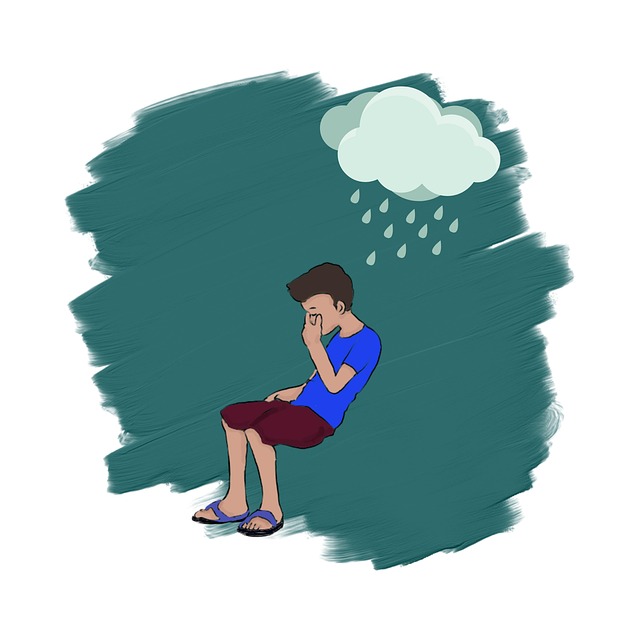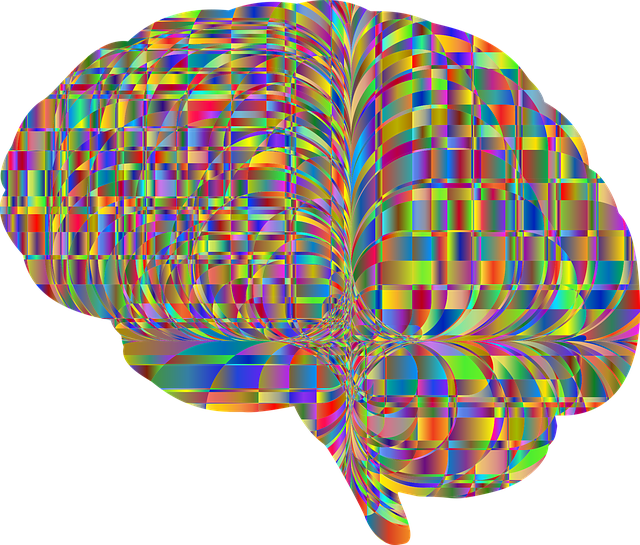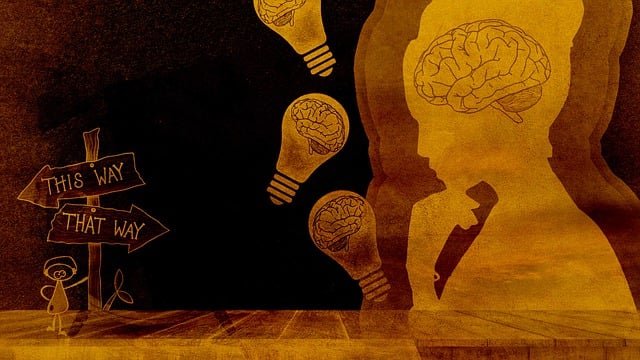Centennial Bipolar Disorder Therapy, characterized by extreme mood swings, significantly impacts emotional health and daily life. Mental wellness apps offer a transformative solution, providing accessible tools for early detection, symptom management, and coping strategies. Effective apps should include mood tracking, self-care routines, burnout prevention features, and tailored coaching, integrating evidence-based practices while fostering user engagement and mental health improvement. Development requires collaboration with mental health professionals to address user needs and promote a holistic approach to Mental Health Awareness.
In today’s digital age, mental wellness apps are transforming therapeutic landscapes, offering accessible support for conditions like bipolar disorder. This article explores the development of innovative digital tools designed to address mental health challenges. We delve into understanding bipolar disorder, examining its impact and unique characteristics. Subsequently, we discuss the role of technology in therapy, highlighting app-based solutions enhancing care accessibility. The focus shifts to designing effective apps, considering key features and development processes, aiming to create supportive digital therapeutic experiences tailored for bipolar disorder management.
- Understanding Mental Health Challenges: Bipolar Disorder in Focus
- The Role of Technology in Therapy: Apps for Better Mental Care
- Designing Effective Mental Wellness Apps: Features and Considerations
- Development Process: Creating a Supportive Digital Therapeutic Experience
Understanding Mental Health Challenges: Bipolar Disorder in Focus

Understanding Mental Health Challenges: Bipolar Disorder in Focus
Bipolar disorder, often referred to as Centennial Bipolar Disorder Therapy, is a complex mental health condition characterized by extreme mood swings, ranging from manic episodes of elevated mood and energy to depressive periods of deep sadness and lethargy. This illness significantly impacts individuals’ emotional well-being, relationships, and daily functioning, necessitating tailored interventions like therapy and support groups. Recognizing the severity of bipolar disorder is crucial in the context of mental wellness app development, as it highlights the need for accessible tools that facilitate early detection, symptom management, and coping strategies.
Apps designed to assist those with bipolar disorder should incorporate features promoting risk assessment and burnout prevention strategies for healthcare professionals involved in care. By integrating emotional healing processes into digital platforms, these apps can empower users to track their moods, identify triggers, and adhere to treatment plans more effectively. Such tools not only support individuals living with bipolar disorder but also educate mental health professionals about the unique challenges faced by those affected by this often-misunderstood condition.
The Role of Technology in Therapy: Apps for Better Mental Care

Technology has revolutionized therapy and mental care, offering innovative approaches to support individuals with various conditions, including Centennial Bipolar Disorder. Apps designed for mental wellness provide accessible and personalized tools to enhance traditional therapeutic practices. These digital solutions can help users manage symptoms, track moods, and develop self-care routines, ultimately fostering better mental health.
One significant benefit is the convenience it offers, allowing people to access support anytime, anywhere. Features like mood journaling, meditation guides, and virtual therapy sessions enable individuals to actively engage in their mental health management. Moreover, these apps can encourage a sense of empowerment and confidence-boosting activities, which is crucial for maintaining a positive mindset. Through ongoing research and development, mental wellness apps continue to shape the future of care, complementing existing services and contributing to broader Mental Health Policy Analysis and Advocacy efforts.
Designing Effective Mental Wellness Apps: Features and Considerations

Effective mental wellness app development requires a thoughtful blend of features designed to support users’ emotional well-being. Incorporating evidence-based practices like cognitive behavioral therapy techniques and mindfulness exercises can empower individuals to manage conditions such as Centennial Bipolar Disorder. Beyond therapeutic tools, apps should prioritize user experience, offering intuitive navigation and accessible content for consistent engagement.
Key considerations include integrating features for tracking moods and symptoms, providing personalized recommendations for self-care routines development for better mental health, and offering coping mechanisms tailored to individual needs. Mental wellness coaching programs development within the app can foster accountability and support users in implementing stress reduction methods effectively.
Development Process: Creating a Supportive Digital Therapeutic Experience

Developing a mental wellness app requires a thoughtful and empathetic approach to create a supportive digital therapeutic experience. The process begins with understanding the specific needs of target users, such as those dealing with bipolar disorder. Researching and collaborating with mental health professionals is essential to ensure the app’s effectiveness and accuracy in addressing various conditions, including Centennial Bipolar Disorder Therapy. Incorporating evidence-based practices like mindfulness meditation can significantly enhance its therapeutic value.
Designing an intuitive interface that promotes user engagement and encourages consistent use is crucial. This involves integrating features that cater to mental health education programs, fostering a sense of community through peer support, and providing tools for tracking progress. By balancing educational content with interactive elements, the app can offer a holistic approach to Mental Health Awareness, empowering users to take charge of their well-being.
Mental wellness apps have the potential to revolutionize therapeutic support, especially for conditions like bipolar disorder. By leveraging technology, these applications offer accessible and personalized care, addressing a growing need in modern mental health management. As we move forward, developers must focus on creating intuitive, evidence-based designs that prioritize user experience, ensuring effective digital therapeutic solutions, such as those tailored for Centennial Bipolar Disorder Therapy.
